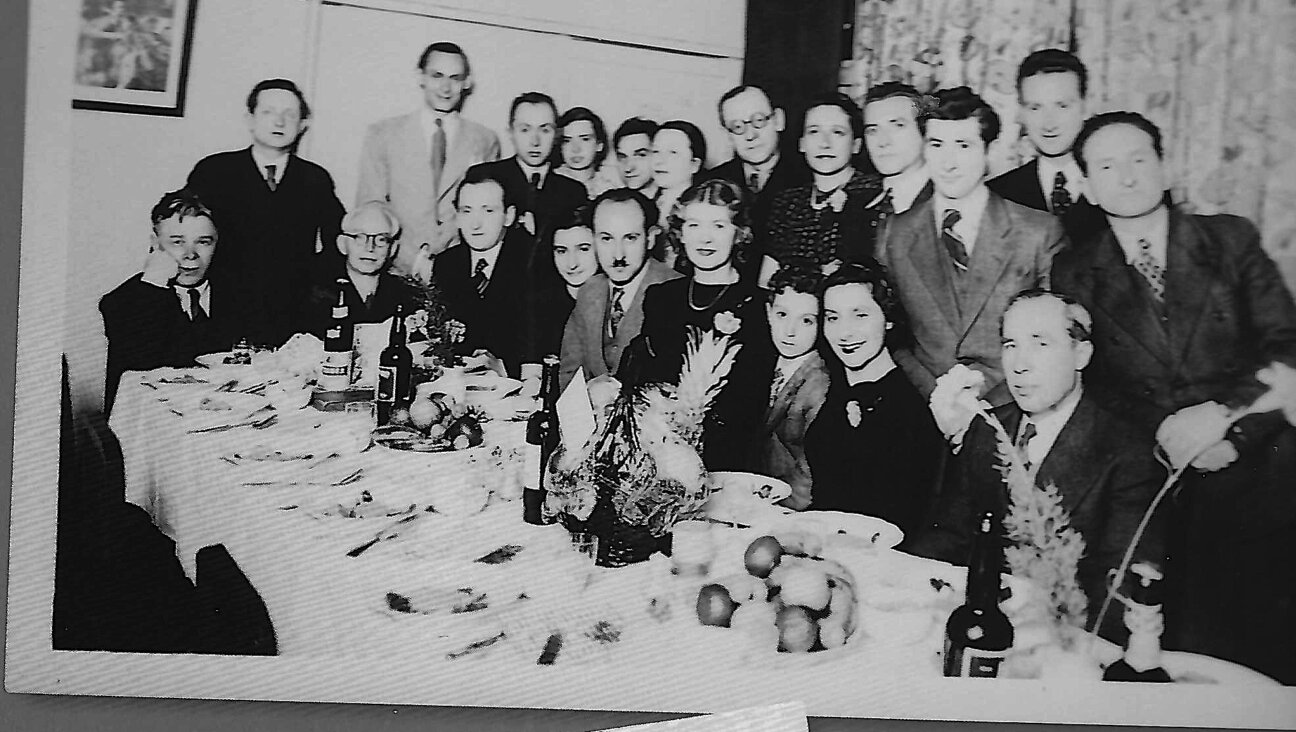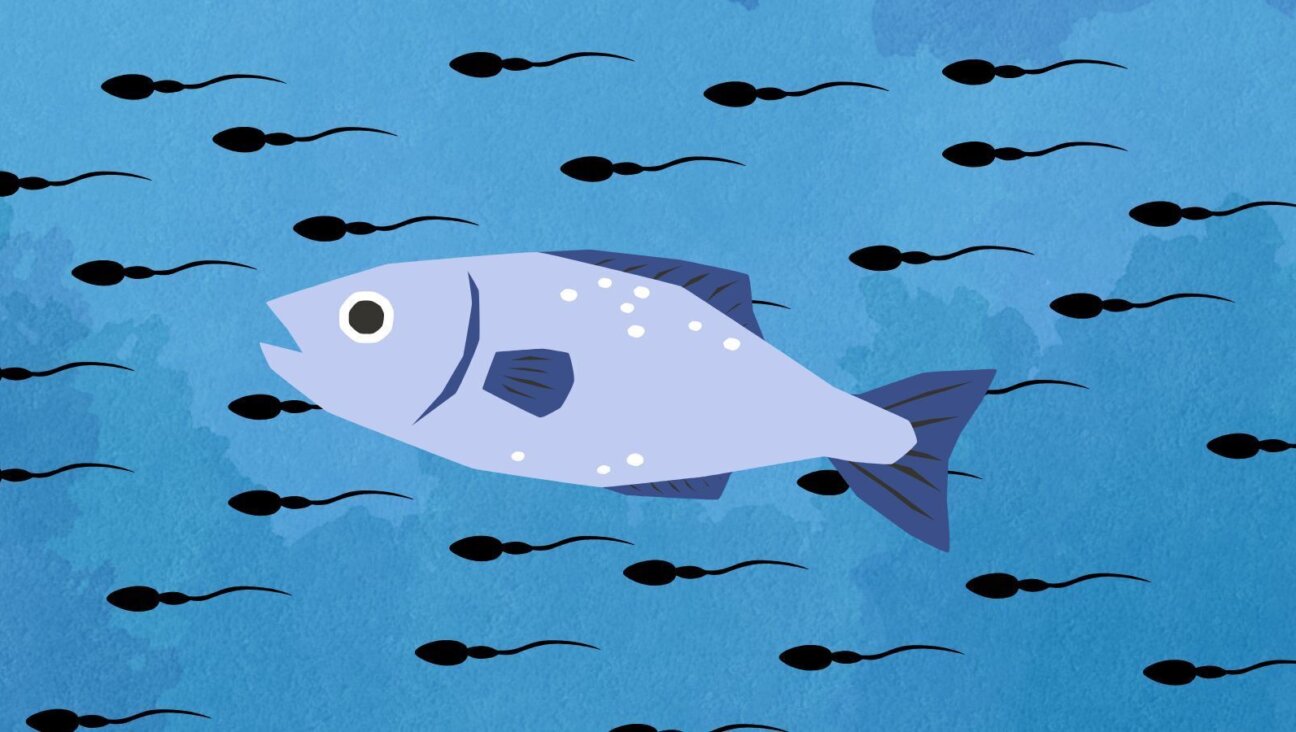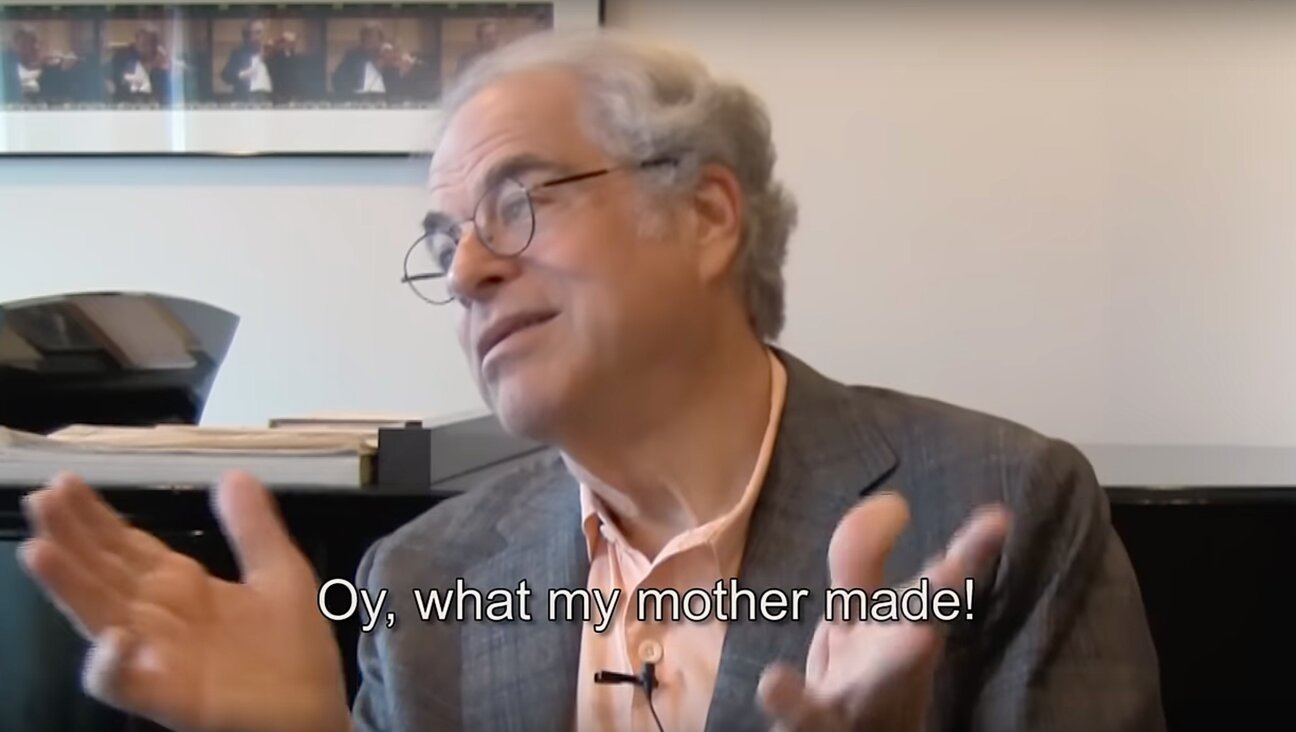The Fantasy Writer, Der Nister, and His Ambivalence Towards Zionism

This article originally appeared in the Yiddish Forverts.
Der Nister, a master of fantasy tales who later turned to Soviet-style realism in his writing, was a complicated man and rarely opened himself up to strangers. There were books of memoirs written about him but they deal, for the most part, with his earlier years. The 1930s, during which Der Nister experienced a crisis of creativity and took on his new literary style, remain the most mysterious years of his life. After bitter attacks by Soviet party-line critics in 1929, he became extremely cautious with his ideas, even among friends.

Yuri Smolich, the Ukrainian writer whose memoirs reveal fascinating aspects of Der Nister’s personality and ideology
Luckily, we have one source of memoirs which sheds some fascinating light on Der Nister’s personality. Written by the Ukrainian writer Yuri Smolich, this book is now part of a collection of Der Nister’s papers in the Russian State Archive of Literature and Art in Moscow.
Smolich was a distinguished literary official in Soviet Ukraine, and his printed memoirs contain a lot of valuable cultural and historical details about that era. (His chapter about Der Nister was, predictably, not included in the official Soviet edition.) Smolich was Der Nister’s neighbor in Kharkiv in the 1930s, and they became good friends after the Soviet Ukraine’s capital was moved from Kharkiv to Kiev in 1934. Both writers remained in Kharkiv and felt unproductive.
Smolich recalls their first encounter: “Der Nister was sitting on a bench in the courtyard of the writers’ club and was enjoying the first warm rays of the May sun. Further down, some people were playing volleyball. On the side, a small group of writers were standing and smoking, likely taking a break from some meeting or discussion at the club. Apparently, they were also talking about the ‘sacrosanct’ issue of Zionism.”
As a Ukrainian, Smolich was not well versed in Jewish ideological issues and asked Der Nister for his opinion on Zionism. Der Nister replied angrily: “That’s all evil gossip. There is no Zionism in any of my work. It’s foolishness, I hate it, do you understand?” Smolich was shocked at Der Nister’s heated reaction.
But after the meeting concluded, Der Nister ran after Smolich and apologized: “Forgive me, Comrade Smolich, I thought you were one of ‘them’!” He was referring to the proletarian critics who had berated him for his ‘Zionism’. The two writers chatted for a while, and Der Nister explained at length why he truly didn’t like Zionism: “Why does an impoverished Jewish man need a state controlled by the Brodskys and the Rothschilds, ruled by Hasidic rabbis?… Even if ten million Jews were to actually reach Palestine – would a small state ever become independent in our lifetime? Or will it be stolen by the rich men and politicians of leading capitalist countries?”
Yet, Der Nister was just as skeptical of the Soviet projects for Jewish agricultural colonization and didn’t even believe in a future for Jews in the Jewish autonomous region, Birobidzhan. He explained his doubts to Smolich, asking ironically: “What would you say if a Ukrainian state were proposed to be created in Australia?”
Even during the 1930s, Der Nister remained as firm a believer in the Jewish Diaspora as he was before the revolution. He hoped that the Soviet power would continue to support Jewish cultural and social institutions founded in the Soviet Union a decade before.
At the same time, Der Nister set out to master realism in his writing. He penned a series of works in a style that was directly opposed to his previous fantasy tales. Smolich believes that the reason for this was not to acquiesce to new Soviet ideological demands, but rather to learn how to portray realism as a literary tool.
Smolich met Der Nister again in 1943, when the latter was just returning from the evacuation of Jews to Tashkent, Uzbekistan. Der Nister was sitting in a far corner in the Moscow State Jewish Theatre, which was his home at the time. Smolich writes: “Der Nister looked very depressed. ‘Smolich,’ he said to me, ‘Tell me that I’m sleeping. Say that this is just a bad dream, and wake me up, wake me up! People can’t be so evil!’”
As evidenced from research recently published by Dr. Dov-Ber Kotlerman, of Bar Ilan University in Israel, Der Nister changed his opinion of Birobidzhan after the war. He visited the Jewish Autonomous Oblast in 1947 and was delighted by the enthusiasm of the new settlers from the Ukraine. It isn’t clear whether he ever revised his attitude to Zionism after the establishment of the State of Israel. Among his very last works was a eulogy for Solomon Mikhoels, artistic director of the Moscow State Jewish Theater, who was murdered by Stalin in January 1948.
Der Nister himself was arrested a year later and died in a prison camp in 1950.
(Translation by Mallika Viswanath)
__

























